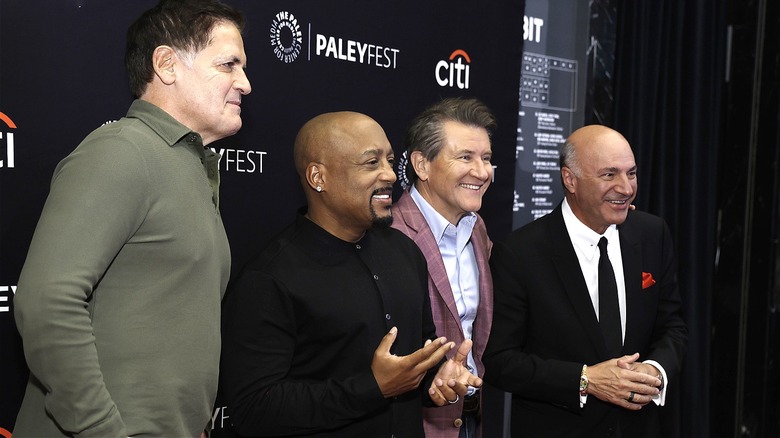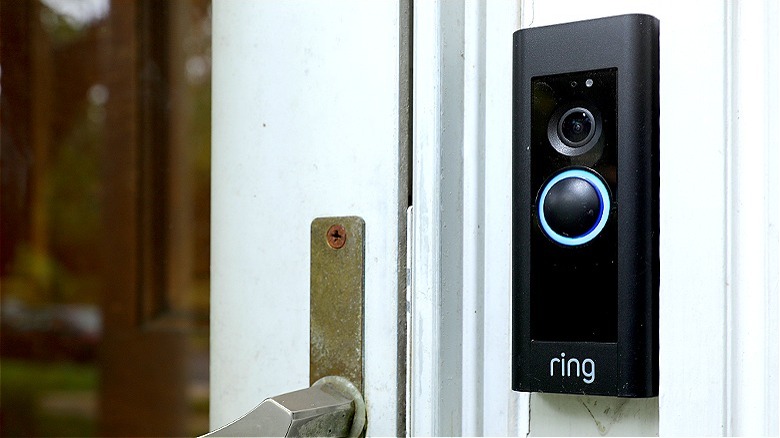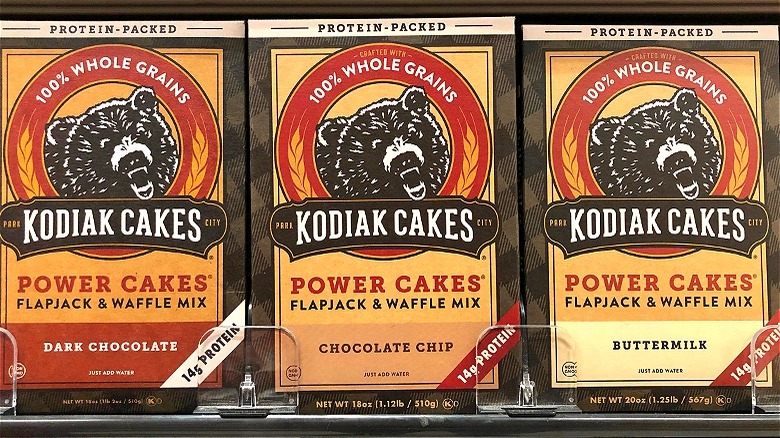Super-Successful Businesses That Rejected Their Shark Tank Offers
From Scrub Daddy sponges to Bombas socks, a number of products that are now widely beloved by consumers rose to popularity thanks to "Shark Tank." Though these budding entrepreneurs usually have some sales under their belt prior to appearing on the ABC reality show, an investment from and the marketing expertise of Mark Cuban (which deal does he regret passing on?), Barbara Corcoran, or one of the other Sharks, helps take the business to the next level.
However, not every entrepreneur who appears on "Shark Tank" needs to make a deal — especially one that's not beneficial to them — in order to find lasting success. Since the show's inception in 2009, quite a few have rejected offers, much to the shock and annoyance of Kevin O'Leary, aka "Mr. Wonderful." For them, continuing to face the debt, hustle, and uncertainty that comes with a startup seemed like a better option than handing over a larger stake in their business than they initially intended, or working with a Shark who doesn't fully "get" their vision.
Though the Sharks oftentimes frown upon those who pass up their deals, several were smart to do so, and have gone on to become massively successful. Case in point, Ring and Kodiak Cakes.
The Ring doorbell didn't impress the Sharks
Millions of Americans today own a Ring doorbell, which allows them to see, hear, and speak to whoever is at their front door in real time. Yet, many might not be aware that the security gadget was presented on "Shark Tank" in 2013 by creator Jamie Siminoff, who felt so confident about his project, he rejected an offer from Kevin O'Leary and left empty-handed.
Siminoff, who described the Ring doorbell (then known as Doorbot) as "caller ID for your front door," asked for $700,000, 10% equity. After nine months in operation, he already made $1 million in direct sales, with the doorbell costing $81.83 to manufacture and retailing at $199. The only Shark to make an offer was O'Leary: $700,000 with 10% royalty (which drops to 7% after the $700,000 is recouped) and 5% equity. But Siminoff declined: "We have a vision to build a big company out of this. I can't give someone 10% of all of our sales because it will bleed us of cash while we really need it the most."
Though Siminoff didn't make a deal on "Shark Tank," the show, which garners millions of viewers each week, gave him massive exposure. In addition to increased sales, he attracted the attention of several investors: Richard Branson put up $28 million in 2015, and Goldman Sachs invested $109 million in 2017. Then, in 2018, Amazon acquired Ring for $1 billion, marking one of the company's biggest purchases.
Kodiak Cakes is worth more than Kevin O'Leary's prediction
Pancake and waffle lovers who regularly find themselves browsing mixes have likely seen the bear-emblazoned box of Kodiak Cakes, which boast 100% whole grains. Though it's now a staple at grocery stores (check out the 17 sneaky ways grocery stores trick you into spending money), the brand once struggled to make an impact on "Shark Tank."
Co-founders Joel Clark and Cameron Smith entered the tank in 2014, asking for $500,000, 10% equity. Despite the two highlighting the quality and nutrition, the Sharks didn't have much faith in the company's success. While Clark and Smith estimated Kodiak Cakes to be worth $20 million in four years, Kevin O'Leary (what's the worst deal he ever made?) predicted only $2 million. Clark and Smith had two deals to choose from: Robert Herjavec's offer of $500,000 for a 35% stake, or a joint offer from O'Leary and Barbara Corcoran for $250,000 and 25% equity each for a total of $500,000, 50% equity. In the end, Clark and Smith rejected both offers, and were right to do so.
Thanks to the exposure granted by "Shark Tank," Kodiak Cakes sales skyrocketed following the episode. By 2020, Kodiak was worth more than $200 million. Additionally, Kodiak's introduction of Protein Power Cakes made it a hot commodity among millennials and those interested in fitness. As Clark told CNBC back in 2018, "They're very community-oriented, they talk about what they eat, and so it started to really spread on social media like crazy."


